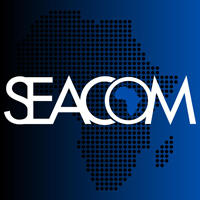ICT for rural development in Tanzania
Posted on | november 14, 2011 | 1 Comment
 Investors have been urged to spread the new scientific and technological advancements in the rural sector in order to improve the quality of life of Tanzanians. The deputy minister for trade and industries Lazaro Nyalandu said that if the rural population is modernized the circulation of money will increase the national income and hence the long term benefits will go to the central Government in the form of taxes and revenues.
Investors have been urged to spread the new scientific and technological advancements in the rural sector in order to improve the quality of life of Tanzanians. The deputy minister for trade and industries Lazaro Nyalandu said that if the rural population is modernized the circulation of money will increase the national income and hence the long term benefits will go to the central Government in the form of taxes and revenues.
Nyalandu was speaking before the Japanese Ambassador to Tanzania H.E. Masaki Okada and other invitees at the latter’s residence in Dar es Salaam on Tuesday this week. He was the guest of honour in an occasion to officially handle over the Life Innovation Container (LIC) project which has been granted by Panasonic Cooperation of Japan to Mbola village in Uyui district Tabora region; this is one of the identified Millennium Village Projects.
Nyalandu said since when Tanzania joined the SEACOM Cable there have been fundamental changes in communication and the ICTs application in genera. It was at this juncture that he calls for other investors to apply science and technology in order to speed up the development of this country.
The occasion was jointly organized by the Japanese Embassy in Tanzania and the Panasonic Cooperation which has donated the LIC technology that will allow villagers to access internet, audio visual education for schools and ultimately for various income generation activities.
This occasion was also attended by other senior officials from the Government of Tanzania and from other companies originating from Japan.
LIC is a stand alone power system from Panasonic’s ‘energy creation’ and ‘energy storage’ technologies packed into the 120 ft container to provide electricity to non electrified regions all over the world for a better living and sustainable society.
The technology involves 18 solar panels (including 6 panels on then roof) and it generates about 9.9 Kwh of power a day, and 48 storage batteries inside the container enables to keep supplying electricity even if it is not sunny for three or four days.
Panasonic donated 1,000 solar powered LED lanterns to the Millennium Village in March 2011, which stores electricity that can be generated in daytime and illuminates light at night time. These lanterns are used widely in non electrified regions. They are eco-friendly products which do not produce Carbon dioxide while in use.
Tanzania is one of the special countries for Panasonic due to the long history in dry cell battery business for over 43 since 1968. The company has promised to continue supporting development initiatives of this country in order to accomplish its Millennium Development Goals (MDGs) in both businesses and corporate citizenship activities.
 AUTHOR: Elias Mhegera
AUTHOR: Elias Mhegera
URL: http://mhegeraelias.blogspot.com
E-MAIL: mhegeraelias [at] yahoo.com
Tags: carbon > ICT > LIC > Life Innovation Container > MDGs > rural > SEACOM > Tanzania
Comments
One Response to “ICT for rural development in Tanzania”
Leave a Reply


 Traffic Solution/Mass Transport Restructuring should top the 6th Lagos Economic Summit agenda
Traffic Solution/Mass Transport Restructuring should top the 6th Lagos Economic Summit agenda





 NL-Aid on BBA & Global March – A Rectification & Apology
NL-Aid on BBA & Global March – A Rectification & Apology



















januari 9th, 2012 @ 19:38
Thank you so much, for picking this story you have made it important than I was expecting
[Translate]